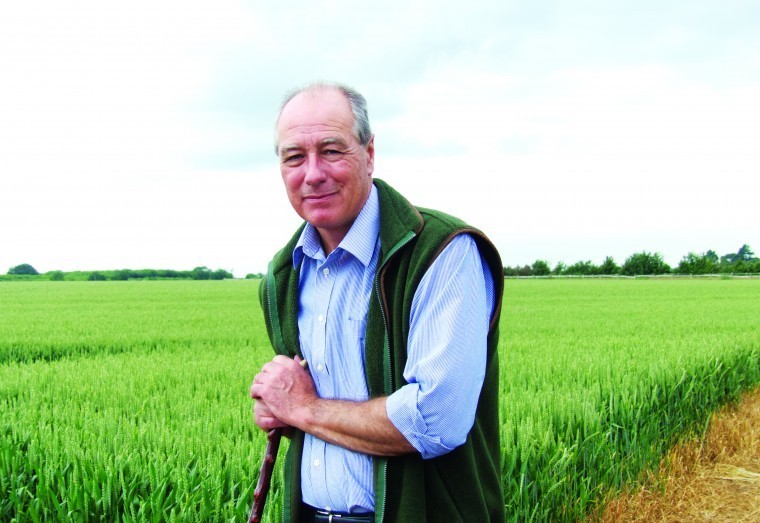The crop was DK Imperial on heavy weald clay, drilled early into moisture from a storm, the Clearfield herbicides did an excellent job on the broadleaved weeds and the dry winter certainly helped with the rooting of the crop.
The outturn was 4.2 tonnes a hectare and under eight per cent moisture with an oil content of 45.2%. For the first time in several years, this is a good crop yield with good market prices. I would have been more than satisfied if we had just maintained those yields but as we have moved to better soils on the North Downs, yields have improved and the odd field is more than 5t/ha. This is a good start to harvest, early, dry and good yields.
Oilseed rape is always a difficult crop to pinpoint what has made a good yield, not least because looking at a crop pre harvest tells you very little. It is not until the combine starts that you get a feel for what the crop you are looking at will translate into yield. One key factor in my experience is the weather at flowering and this year it was sunny and warm leading to good pod and seed set and low disease levels which have transferred into a long seed filling period with little disease.
The long dry spring certainly curtailed nitrogen availability but when the rain in late May arrived it certainly released nitrogen that had effectively been locked up by lack of soil moisture resulting in a boost to crops and a very green leaf and pod area. In some years we try to replicate this with a late post flowering application of liquid urea but nature on this occasion did a far better job with good results.
We will be finished with oilseed rape by 21July, more or less the date we normally start! Wheat will follow on as the crops are already ripening with only odd green areas and ears still to change. Again, the Weald clays will come to harvest before the better soils on the Downs. There is little to say about them until we start combining and put trailers across a weighbridge.
On to next year’s cropping and the game changing European Commission proposal to stop the use of plant protection products on nitrogen fixing crops grown as part of the environmental focus areas. If government ever wanted an example where support payments and accompanying regulations can be used to dramatically alter land use for crop production it is about to get an excellent lesson.
With a start date – or more aptly stop date, of 1 January 2018 – beans have just dropped out of our crop rotation completely. So a protein crop where Europe has a deficit and a source of flowers for pollinators for an extended period of the spring when we use winter and spring varieties has at a stroke been rendered non viable.
That leads us to look at whether we should be growing them at all as they do not help much in the fight against blackgrass through inadequate competition and economically only stack up when the subsequent first wheat benefits are taken in to account. I anticipate we will use the fallow option on the worst blackgrass fields we have whether coming out of break crops or at any point in the rotation and try to get some farming benefit out of yet another European muddle.
That is likely to mean patchwork fallow on some farms which will be a different look from the public perspective. But then again it is really no different to the set aside of the early nineties, albeit that was introduced to limit production. My regret is that clearly environmental benefits for pollinators will be lost along with the economic benefits of production of protein crops and there is absolutely no logic to this change.
The new secretary of state at DEFRA Michael Gove has rather limited his engagement with farmers. Much is made of his status as a heavy hitter in government to which I guess Boris Johnston might be a good judge. He is a reformer although I am not sure I have yet found any teachers who have fond memories of his achievements at the department for education.
So where does that leave farming as parliament goes into recess and MPs depart on their holidays or in some cases manoeuvres? Well it is important to try and get your local MP on to a farm and air some of the key issues for our industry. Alternatively just ask to see them at their Friday constituency meetings.
If they are Conservatives and you get the opportunity, please remind them that they are in power with no mandate. That was in large part because they fought an election on a manifesto that sought to make nearly every one of their core constituency groups worse off and they duly got the kicking from the electorate they deserved.
At the moment I am far from clear they have learnt the lesson -not least in the way they are treating agriculture. As they have little idea of when the next election will occur they really should recognise that a second round with the electorate without a very serious rethink might just see them sitting on the opposition benches wondering where it all went wrong. Or redundant looking for a job in the real world.




